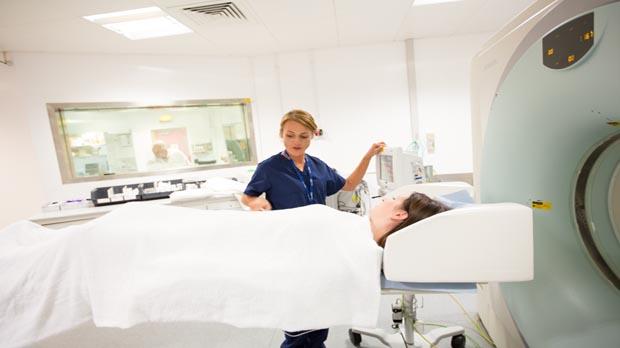
Around 1 in 5 people diagnosed with cancer in the UK take part in a clinical trial.
This trial was for adults with acute promyelocytic leukaemia (APL).
Cancer Research UK supported this trial.
ATRA and a chemotherapy drug called idarubicin is the usual first treatment for APL. ATRA is similar to vitamin A and is also called tretinoin or Vesinoid. This was the  when this trial was done. But sometimes the chemotherapy causes side effects and affected
when this trial was done. But sometimes the chemotherapy causes side effects and affected  . So doctors wanted to find other treatments that worked well and improved quality of life.
. So doctors wanted to find other treatments that worked well and improved quality of life.
In this trial, they looked at a treatment called arsenic trioxide. It is also called trisenox or ATO. Arsenic trioxide works by speeding up the death of leukaemic cells and encouraging normal blood cells to develop properly. It does this by working on particular proteins within the cell.
The researchers thought ATRA and arsenic trioxide might work as well as standard treatment and have fewer side effects. But they weren’t sure so wanted to find out more. This trial compared the following treatments:
The main aims of the trial were find out:
Please note - there is another part of the AML17 trial that looked at different treatment for acute myeloid leukaemia (AML). We have a summary for the results for this part of the AML17 trial on our trials database.
The trial team found that ATRA and arsenic trioxide worked well for people with a high or low risk of their acute promyelocytic leukaemia (APL) coming back. The leukaemia came back in fewer people who had this treatment. But overall there was no difference in how long people lived for after either of the 2 treatments, or in quality of life.
235 people with APL people took part. Of those, 57 had a high risk of their leukaemia coming back. Everyone was put into 1 of 2 groups at  .
.
The trial team looked at how well treatment worked. They found the leukaemia went away completely (complete remission) in just
They also looked at whose cancer had come back (relapsed). This happened in:
They didn’t find a significant difference in:
As expected, people who had ATRA and chemotherapy had more serious side effects. These included hair loss and mouth problems.
People who had ATRA and arsenic trioxide had higher levels of liver enzymes after the 1st course of treatment. But these levels went back to normal and there were no further problems during the 2nd course.
People who had ATRA and idarubicin spent more days in hospital and needed more supportive care such as antibiotics.
The research team concluded that ATRA and arsenic trioxide did not improve quality of life compared with standard treatment. But they say this study confirms that it is an acceptable treatment for people with both low and high risk APL.
We have based this summary on information from the research team. The information they sent us has been reviewed by independent specialists ( ) and published in a medical journal. The figures we quote above were provided by the trial team who did the research. We have not analysed the data ourselves.
) and published in a medical journal. The figures we quote above were provided by the trial team who did the research. We have not analysed the data ourselves.
Please note: In order to join a trial you will need to discuss it with your doctor, unless otherwise specified.
Professor A K Burnett
Professor N H Russell
Cancer Research UK
Cardiff University
Experimental Cancer Medicine Centre (ECMC)
NIHR Clinical Research Network: Cancer
This is Cancer Research UK trial number CRUK/08/025.
If you have questions about the trial please contact our cancer information nurses
Freephone 0808 800 4040

Around 1 in 5 people diagnosed with cancer in the UK take part in a clinical trial.